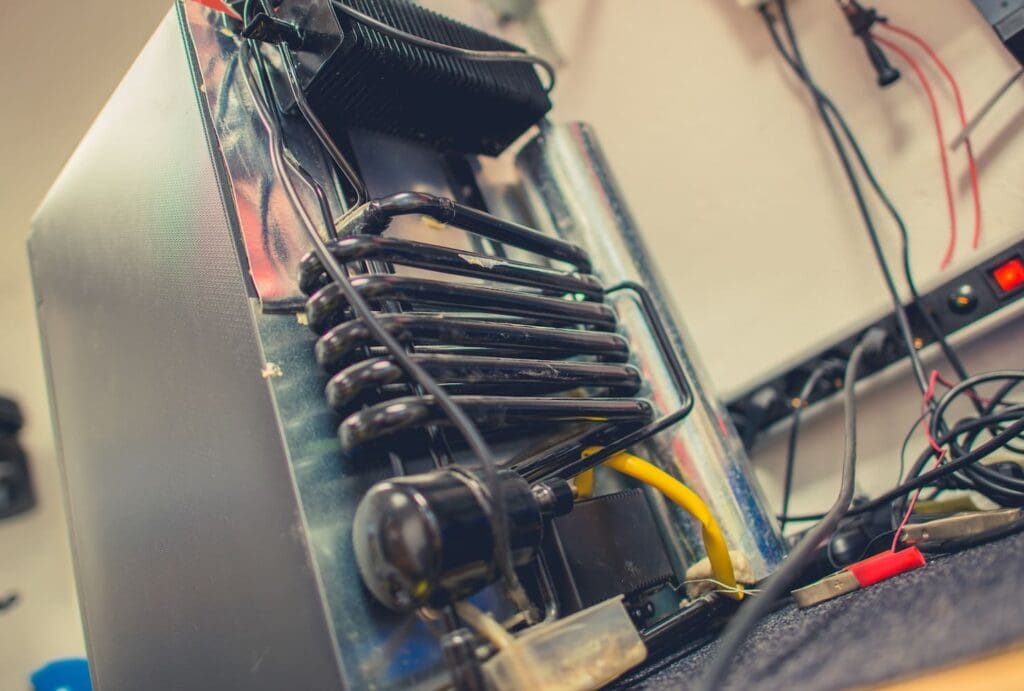Propane refrigerators are known for their efficiency and practicality in environments with limited electricity, but they often face performance challenges in high heat. Understanding how these refrigerators work and the factors affecting their efficiency can help you troubleshoot and resolve these issues.
How Propane Refrigerators Work
Propane refrigerators use an absorption process, which involves no moving parts and relies on a mixture of propane, ammonia, water, and hydrogen to create cooling. The process starts with a propane flame heating a solution of ammonia and water in the generator.
Heat-Related Issues
Propane refrigerators can struggle to maintain optimal temperatures during hot weather for several reasons:
- High Ambient Temperature: High outdoor temperatures make it harder for the refrigerator to dissipate internal heat. The condenser, which cools the ammonia gas, becomes less effective as the ambient temperature rises. Manufacturers often indicate that propane refrigerators do not perform optimally above 30°C (86°F).
- Poor Ventilation: Proper airflow around the condenser coils is essential for a propane refrigerator to function correctly. In hot weather, ensuring that the refrigerator’s vents are clear and unobstructed is crucial. Avoid placing the refrigerator too close to walls to promote adequate air circulation.
- Sun Exposure: Direct sunlight can cause the refrigerator’s exterior to absorb additional heat, increasing the internal temperature. Positioning the refrigerator in a shaded area can help mitigate this issue.
- Overloading: Overfilling the refrigerator can impede internal air circulation, making it difficult to maintain a consistent temperature. Adding too many warm or ambient-temperature items also increases the thermal load the refrigerator must handle.
Tips to Improve Performance in Hot Weather
- Enhance Ventilation: Installing an additional fan can help dissipate heat from the condenser, maintaining a lower temperature around the coils and improving efficiency.
- Provide Shade: Use awnings, umbrellas, or other shade structures to protect the refrigerator from direct sunlight, reducing the thermal load.
- Regular Defrosting: Frost buildup on the evaporator coils can reduce efficiency. Regular defrosting ensures optimal air circulation and heat exchange.
- Minimize Door Openings: Each door opening allows warm air to enter, forcing the refrigerator to work harder to maintain a low temperature. Plan your refrigerator access to minimize frequent openings.
- Keep the Refrigerator Level: For proper circulation of the ammonia solution, the refrigerator must be level. An imbalance can disrupt the absorption process and reduce efficiency.
Maintenance and Upkeep
Regular maintenance is key to keeping your propane refrigerator in good working order. Follow these steps:
- Clean the Burners: Ensure burners are free of debris and residue for a clean, stable flame. An unstable or yellow flame indicates combustion issues affecting generator heating.
- Check for Gas Leaks: Use a soapy water solution to inspect gas connections. Bubbles indicate a leak that needs immediate repair to prevent performance or safety issues.
- Inspect the Coils: Regularly clean the condenser coils to remove dust and debris that can hinder heat transfer.
- Replace Worn Parts: Replace any worn or malfunctioning components with manufacturer-specified parts to maintain optimal performance.
Transitioning to Electric Refrigerators
While propane refrigerators use an older cooling technology, they do not tap into your RV’s battery. However, new electric RV refrigerators are significantly more efficient. To support an electric refrigerator, your RV must be equipped with an AGM or a Gel battery designed for RVs to handle the constant power demand.
If your RV’s propane refrigerator is failing, consider upgrading to an electric model and replacing your lead-acid battery. This change will be more efficient and economical in the long run, providing the benefits of a battery designed specifically for RV living.











